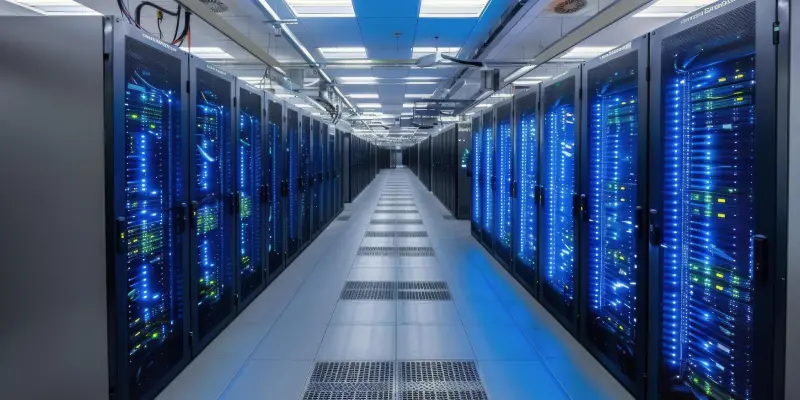As the digital age propels forward with unprecedented velocity, data centers have become the linchpin supporting global technological advancements and developments. With the ever-increasing reliance on cloud computing, AI, and digital services, these centers have seen a dramatic rise in both importance and demand. Consequently, the spotlight is on the sustainability of these structures, prompting an urgent need to reassess their environmental footprint. The collaboration between Infrastructure Masons (iMasons) and GRESB now aims at crafting a global sustainability benchmark tailored specifically for data center investments. This initiative seeks to provide institutional investors with consistent metrics, enabling a fair evaluation of environmental performance and streamlining the processes of capital allocation, risk assessment, and due diligence.
The Necessity for Sector-Specific Benchmarks
Recognizing the distinctive operational requirements and energy consumption characteristics of data centers compared to traditional real estate, the new standards being developed are a response to these unique challenges. Chris Pyke, GRESB’s chief innovation officer, highlighted that traditional benchmarks fall short in accurately reflecting the idiosyncrasies of data center operations. These facilities, crucial for the digital backbone, have energy consumption and cooling needs that differ significantly from typical real estate assets. Pyke’s analogy illustrates this disparity well, equating the assessment of data centers with traditional measurements to testing a Formula 1 car using city emission standards. Moreover, data centers serve as critical infrastructure for cloud computing and artificial intelligence applications, driving a need for benchmarks that are as advanced as the technology they support. By addressing these operational complexities, the newly devised benchmarks will facilitate more precise comparisons and prompt targeted performance enhancements across this vital sector.
Energy Concerns and Measuring Performance
Central to the benchmarking initiative is the issue of energy consumption, a major concern for data centers given their role as substantial energy consumers within the digital world. Between now and 2027, data centers are expected to exhibit significant fluctuations in energy usage due to the combined pressures of surging demand, heightened density, and rapid digitalization. These benchmarks aim to assess various dimensions of energy usage—including electricity demand, power usage efficiency, peak demand, and greenhouse gas emissions. Through a modular structure, these benchmarks will permit comparisons among facilities in similar environments and geographical locations. For investors, understanding the metrics related to energy performance is crucial. These measurements not only indicate a center’s operational efficiency but also provide crucial insights that guide capital allocation and investment decisions.
Addressing Social Impact and Workforce Concerns
In addition to environmental metrics, the new benchmarking norms are set to include social impact evaluations, recognizing that data centers are not merely energy consumers but also function as workplaces and community hubs. Social metrics within this framework will encompass aspects such as worker health and safety, workforce education, and community engagement initiatives. These components offer investors comprehensive insights into a facility’s social license to operate, its capacity to attract and retain a skilled workforce, and its engagement with the surrounding community. Social performance indicators thus become another key factor in guiding investment decisions, illustrating how a center not only meets environmental targets but also contributes positively to societal growth. This broadened scope reflects a growing trend in investment circles, where understanding a facility’s social impact is increasingly pivotal.
Implications for Investors and the Broader Market
The introduction of a sector-specific benchmark for data centers reflects heightened investor interest in the sector’s environmental impact. With predictions from JLL’s global data center forecast indicating a value of $170 billion seeking development or permanent financing by 2027, the need for reliable global standards becomes evident. These benchmarks will enable investors to make well-informed comparisons between sustainability performances and risks associated with various asset classes. A recent wave of interest in transparency has been observed with major industry players like Google, AWS, Meta, and Microsoft advocating for the adoption of Environmental Product Declarations (EPDs) in mid-2024 to enhance carbon transparency. These large-scale efforts are shifting the industry towards a more sustainable and transparent supply chain. Ensuring transparency is crucial for driving value creation and making informed investment decisions, echoing the broader market’s recognition of sustainability as an essential component of data center operations.
Charting the Course Towards a Sustainable Future
Acknowledging the unique operational requirements and energy consumption patterns of data centers compared to conventional real estate, new standards are being formulated to address these specific challenges. Chris Pyke, GRESB’s chief innovation officer, emphasizes that =existing benchmarks fail to capture the distinct characteristics of data center operations accurately. These facilities, integral to the digital framework, have energy demands and cooling necessities markedly different from regular real estate assets. Pyke draws an analogy likening the assessment of data centers with traditional metrics to evaluating a Formula 1 car with city emission standards. Additionally, data centers are pivotal for cloud computing and artificial intelligence, highlighting the need for benchmarks as advanced as the technologies they support. By tackling these operational intricacies, the newly developed benchmarks will enable more accurate comparisons and foster targeted performance improvements in this essential sector.

